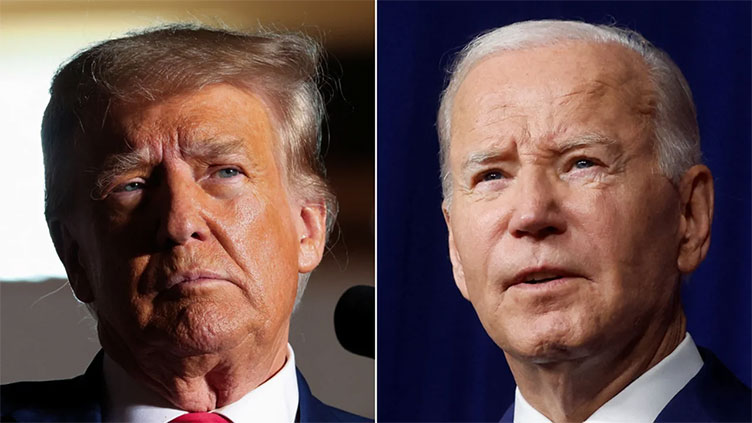Trump claims to be pro-worker. His record says he's anti-union

Business
‘He’s not supportive of workers’ right to organise, bargain collectively or strike’
(Web Desk) - Donald Trump arrives in Michigan with a lot more support among blue collar union members than a lot of Republican presidential candidates before him. But his record as president is decidedly anti-union.
“I want a future that protects American labor, not foreign labor,” he said at a rally Wednesday in Detroit, where he opened his speech by praising blue collar workers.
But the National Labor Relations Board, which oversees labor relations at most businesses, and Trump’s court appointments, particularly to the Supreme Court, have handed unions major setbacks since he took office in 2017.
“He’s not supportive of workers’ right to organize, bargain collectively or strike,” said Cathy Creighton, an NLRB attorney during the Clinton administration and a union lawyer who now serves as the head of the Buffalo, New York office of Cornell University’s school of Industrial and Labor Relations. “Other Republican presidents said they were pro-business, or that they think labor has too much power.
He tells working Americans he’s on their side when everything he did was anti-union.”
During Trump’s term, the NLRB members he appointed made it more difficult for unions to win representation at nonunion workplaces, extending the time between when a union files for representation to when an election is held, and thus granting management more time to campaign against the union with its employees.
The Biden NLRB has rolled back those rules after they were struck down in court, and it is moving to make it easier for a union to organize.
The Trump Supreme Court also issued a devasting ruling against public sector unions, which represent almost as many union members as found at private businesses. The 2018 decision, with Justice Neil Gorsuch, a Trump appointee, providing the deciding fifth vote, makes it easier for government employees nationwide to not pay union dues even if their workplace is unionized.
Trump was famous for making promises that he would stop businesses from moving operations out of the country or shutting them down. Among his most vocal promises was that he would stop GM from closing the massive assembly plant in Lordstown, Ohio.
In a 2017 speech in nearby Youngstown, he promised residents that manufacturing jobs would be returning to the region, telling the crowd: “Don’t move. Don’t sell your house.”
But two years later GM closed the plant, despite Trump’s calls to GM CEO Mary Barra and attacks on the company’s closure plans. The company that bought the plant with plans to to eventually hire thousands of workers, Lordstown Motors, produced more losses than pickup trucks, and has already filed for bankruptcy and halted operations.
Trump promised he would impose steep tariffs on vehicles coming from Mexico, a promise he is making again now on the campaign trail. But his 2020 update of the North American Free Trade Agreement, which has long been deeply unpopular with many blue collar workers, imposed no such tariffs on vehicles coming from Mexico, and has done little to change the flow of vehicles across US borders.
While Trump says he created auto jobs and that the Biden administration is destroying them, Michigan lost 1,900 auto manufacturing jobs, or 4% of the total, between February 2017, just after Trump took office in through February 2020, just before the start of the pandemic, according to the Bureau of Labor Statistics. The state gained 1,800 auto jobs from February 2021, Biden’s first month in office, through February of this year.

